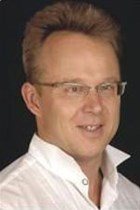
Top stories






More news

















Logistics & Transport
Uganda plans new rail link to Tanzania for mineral export boost









The South Korean administration is searching for ‘hidden champions', the little-known but powerful small firms equipped with the world's best technologies, to promote them abroad as part of a nation-branding campaign.
In an interview with The Korea Times, the chairman of South Korea's Presidential Council on Nation Branding, Euh Yoon-dae, expressed hopes that such efforts will help consolidate the country's reputation as a technological powerhouse and, in the long run, enhance Korea's global image.
Policymakers have long complained that Korea, associated with the negative image of North Korea, illegal demonstrations and bribery scandals involving politicians, to name a few, doesn't get its due treatment from overseas buyers as the world's 13th-largest economy.
Korean President Lee said recently that “Korea is the world's 13th largest economy with some $20,000 in per capita income, but ranks only 33rd in the global brand index. This is a big problem,” adding that “the value of brand Korea only accounts for approximately 30 percent of the nation's economic power (i.e. GDP). The proportion is no more than a small fraction of that of the United States and Japan''.
Korea's brand value is estimated at less than 30% of its gross domestic product, while the US's nation brand was assessed to be worth 143% of its GDP and Japan's 224%. This despite Korea having emerged as a global leader in information technology, boasting the highest rate of Internet use as well as reknown multinational brands and its pop culture enjoying a boom abroad, especially in Asia.
In a recent analysis by the Chief Marketing Officers Council (CMO), Korea was placed in the lowest category of nation brands, specified as “ill-defined, under-valued and asset-rich” . “Still, Korea has many things to proudly show to the world,” Euh said. “One of them is the technological advances it has made.”
According to government data, the number of made-in-Korea products that are among top fives in terms of global sales, totals 388. Of them, 244, or 63%, are produced by small- and medium-sized enterprises.
Many of those companies have failed to get attention from end users for various reasons: Their names are unknown largely because the market is not big enough, or they produce parts or accessories. Some have avoided revealing their origin due to the so-called Korea Discount.
“The firms are largely unknown, but are true contributors to the country's fast exports growth,” Euh said. “They are eligible for more investment and global attention. Their fame will help for Korea's reputation, too.”
After reading Prof Hermann Simon's book, Hidden Champions, an analysis of 500 small German enterprises that hold leading global positions, Euh thought Korea could be like Germany.
Simon said in the book the firms tend to pursue market leadership above their market share; maintain highly-focused dominance of narrowly defined markets; reach out to global markets; maintain close relationships with their customers, based on superior service; and pursue constant innovation to maintain their market dominance.
To promote the competitive small firms abroad, the Korean government is considering setting up public relations offices at major airports and exhibition centers around the world.
Promoting the ‘best of the best'
Euh's council is currently working with Daewoo Securities and the association of SMEs to choose “the best of the best'” and give them full support for overseas expansion. The blue-ribbon group may include HJC Helmets, the world's No.1 maker of motorcycle helmets since 2001; Esencia, the world's top toothbrush steriliser manufacturer; and DongHwa Entec, which meets 83.3% of global demand for air-cooling systems for diesel-powered ship engines, financial industry sources said.
“The work to find little giants is part of the meaningful process of developing the country's future economic growth engines,” Euh said, pointing out that “for the past decades, a large number of Korean firms have supplied products to foreign multinational firms as sub-contractors. Through the experience, the firms have learned how to do business on the global stage and improved the quality of their own products.”
In order to raise Korea's brand image, Presidential Council on Nation Branding launched a 10-point action plan, which consists of the following activities:
According to the President of the Council on Korea's Nation Branding, Euh Yoon-dae, the 10-points action plan's ultimate objective is to lift Korea's ranking on the Nation Brands Index (NBI) to the 15th position over a period of four years, 18 notches upwards from the current 33rd.
Now how can 2010 accelerate Africa's continental branding objective, that is, to reverse the old stereotypes of “ongoing catastrophe” , and communicate positive touchpoints about her people, achievements and progress towards making the 21st century the African Century?
